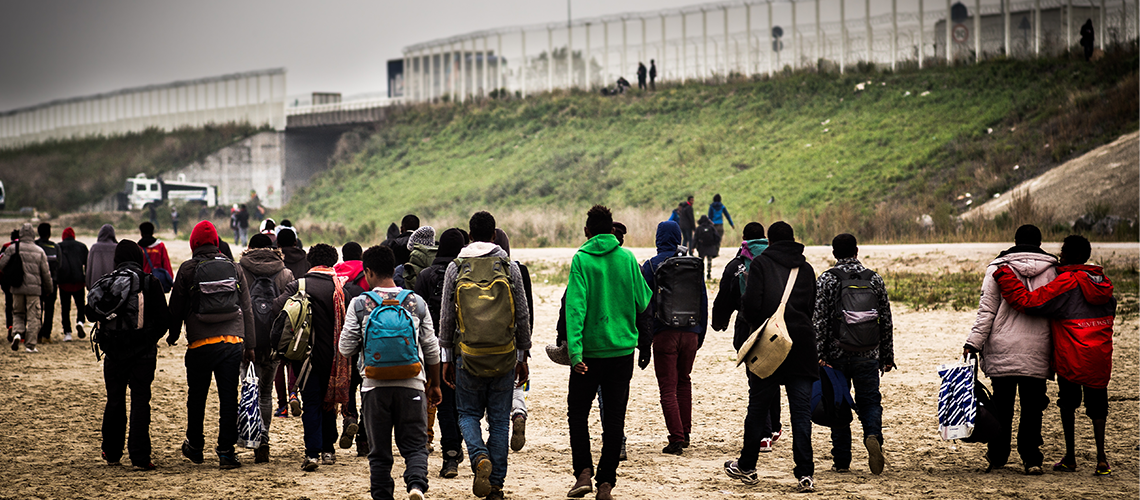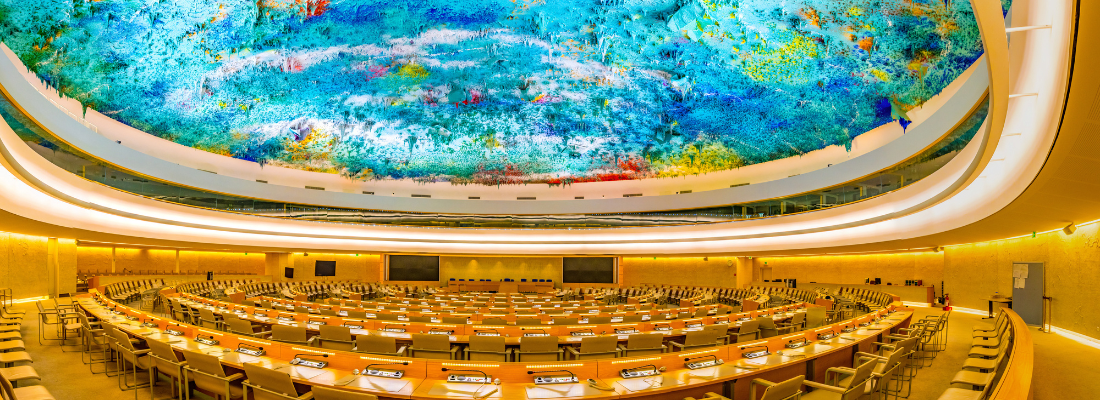Migration crisis: Rule of law under threat as UK government passes controversial Rwanda deportation law
Ruth Green, IBA Multimedia JournalistThursday 9 May 2024

On 25 April, the UK signed into law a highly controversial policy that could see asylum seekers deported to Rwanda.
The policy was introduced to tackle the issue of small boats crossing the English Channel and forms part of Prime Minister Rishi Sunak’s key priority to tackle high levels of immigration.
The scheme’s critics argue that offshoring asylum seekers is inhumane, extremely costly and will fail to deter the number of migrants attempting to reach the UK.
An interim measure by the European Court of Human Rights (ECtHR) blocked the first deportation flight to Rwanda in June 2022. In November, the UK Supreme Court ruled the policy was unlawful, upholding a Court of Appeal decision, which said it risked the human rights of asylum seekers once they arrived in Rwanda.
However, in December, the government introduced draft legislation to allow deportation to go ahead. In the ensuing months, the bill’s provisions were fiercely debated, with peers in the House of Lords – the secondary revising chamber, which scrutinises, reviews and proposes amendments to laws – voting multiple times to add significant safeguards.
What we tried to do […] was to concentrate on issues of constitutional principle, rule of law and respect for international law
Lord Anderson
Cross-bench peer, House of Lords
Two specific aspects of the bill raised concerns. First, the presumption that Rwanda was a safe country and, second, that this assertion couldn’t be challenged by the courts.
The proposal to give ministers discretion to disregard international law, including interim measures issued by the ECtHR in deportation cases, was a clear red flag, says Lord David Anderson of Ipswich KBE KC, a barrister at Brick Court Chambers and cross-bench peer in the House of Lords. ‘The United Kingdom actually has a very good track record in complying with interim measures’, he says, ‘but to state in an Act of Parliament that the Minister was entitled not to comply with them was a step too far for many of us.’
Anderson concedes the government has introduced multilateral judicial mechanisms and training schemes to ‘remedy the defects’ identified by the Supreme Court. ‘But that’s no excuse for preventing the courts from hearing any evidence to the contrary’,’ he says. ‘If the government ever wants to overturn the conclusive presumption that Rwanda is safe, it will have to introduce more primary legislation, which doesn't seem a sensible use of parliamentary time.’
Although attempts by Anderson and others to amend some of the bill’s most controversial provisions were voted down, he believes the Lords has an important ‘restraining factor’ on government. ‘Second chambers mean second thoughts and challenge is good’, he said. ‘What we tried to do […] was to concentrate on issues of constitutional principle, rule of law and respect for international law, but[ …] when a government is politically, entirely committed to something happening, the House of Lords, as the unelected house, is unable to stand in its way. We saw the same thing with Brexit legislation.’
The policy has provoked controversy elsewhere. In March, as the scheme was still being debated in Westminster, the risk of deportation to Rwanda provided sufficient concern for Ireland’s High Court to rule that the UK was unsafe for returning asylum seekers.
The ruling followed a challenge to the lawfulness of Ireland’s designation of the UK as a ‘safe third country’ and featured two applicants who were refused international protection in Ireland based on their connection with the UK.
Ireland’s designation, which was last formally reviewed in December 2020, permits the Irish authorities to find that an international protection application is inadmissible if the applicant has arrived from the UK. However, in light of the Rwanda policy, the judge said Ireland’s current designation of the UK was ‘unlawful’ as a matter of EU law.
Nicolas Rollason, head of business immigration at Kingsley Napley and Co-Chair of the IBA Immigration and Nationality Law Committee, says the judgment exemplifies how other countries view the Rwanda policy. ‘The judgement didn’t get much publicity in the UK, but it’s quite a major ruling of the High Court in Ireland […] that these people are at risk,’ he says.
Sources close to the case told Global Insight the ruling is likely to be appealed, though the timeframe remains unclear. Meanwhile the Irish government appears to have identified a workaround. Within days of the UK signing the Rwanda bill into law, Ireland’s Justice Minister, Helen McEntee, said the government would pass its own legislation that would redesignate the UK as a ‘safe country’ to enable asylum seekers to be sent back to the UK.
The Irish government has said more than 80 per cent of recent arrivals to Ireland came over the land border with Northern Ireland via the Common Travel Area (CTA) – although there are no official statistics to support this claim. Under the CTA’s rules, UK and Irish citizens can travel freely across the border, but it makes no reference to refugees.
Legal aid for asylum cases in the UK is virtually non-existent, meaning very few asylum seekers will be able to appeal against deportation. Despite the severely backlogged judicial system, the government says there will be judicial capacity to fast-track Rwanda appeals.
A spokesperson for the judiciary confirmed that 25 dedicated hearing rooms and 150 judges will be available to oversee asylum cases. Global Insight also understands the Judicial Appointments Commission is recruiting and training more judges to start sitting from ‘the summer’ when the first flights to Rwanda are expected to leave.
As diplomatic tensions between London and Dublin swirl once again over the Irish border, Rollason is perturbed about the damage the Rwanda policy has already inflicted on the UK’s global standing. ‘The real effect is to send out a message to the rest of the world that the UK does not observe the rule of law or take it seriously’, he says. ‘I think that will really backfire on the UK, particularly if we see that it doesn't have a deterrent effect.’
As of 8 May, the Home Office reported 8,826 migrants had crossed the English Channel so far in 2024 – more than the same period in 2022 and 2023.
Image credit: MichaelAntonKraus/AdobeStock.com



